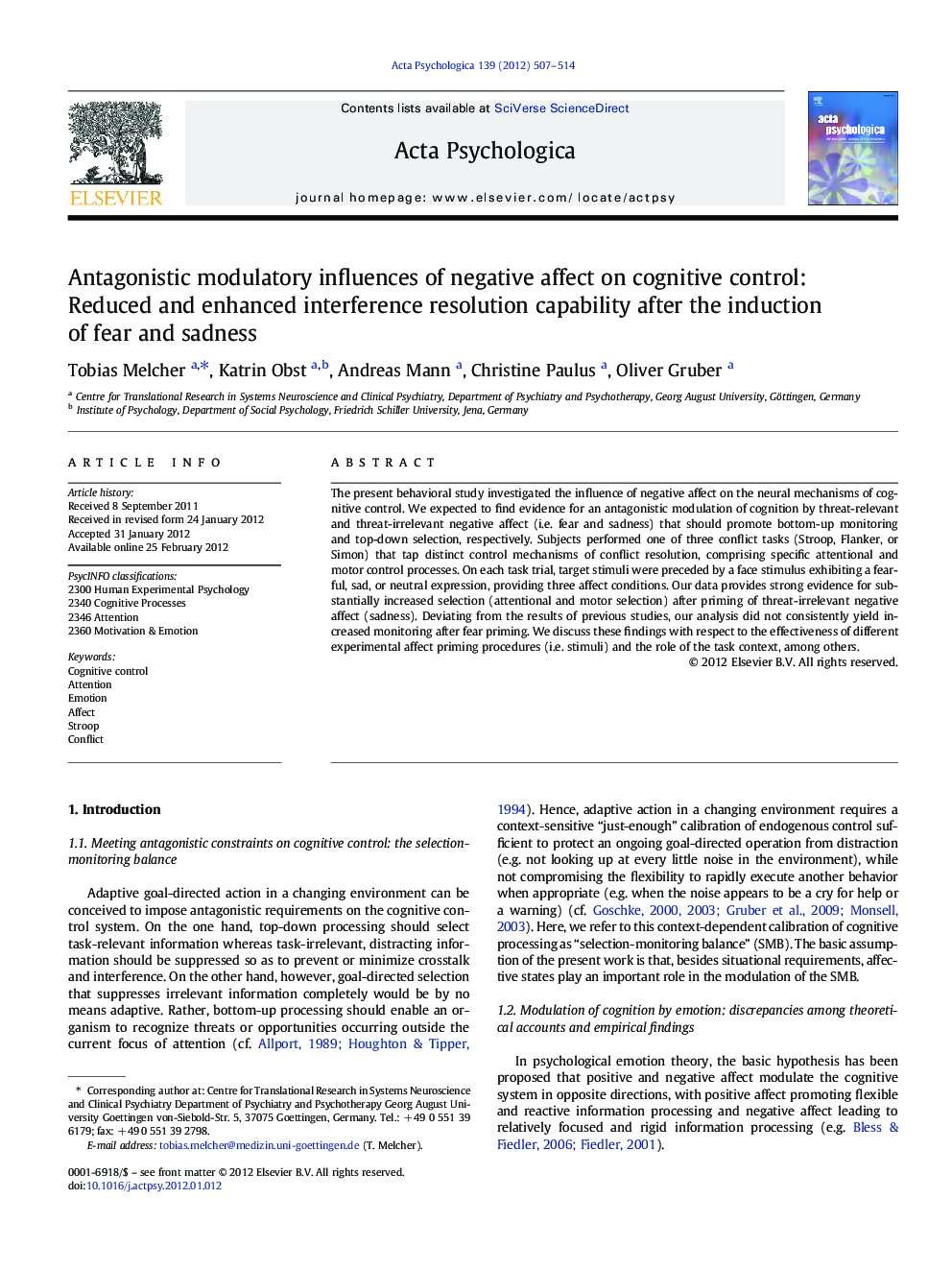| Article ID | Journal | Published Year | Pages | File Type |
|---|---|---|---|---|
| 920065 | Acta Psychologica | 2012 | 8 Pages |
The present behavioral study investigated the influence of negative affect on the neural mechanisms of cognitive control. We expected to find evidence for an antagonistic modulation of cognition by threat-relevant and threat-irrelevant negative affect (i.e. fear and sadness) that should promote bottom-up monitoring and top-down selection, respectively. Subjects performed one of three conflict tasks (Stroop, Flanker, or Simon) that tap distinct control mechanisms of conflict resolution, comprising specific attentional and motor control processes. On each task trial, target stimuli were preceded by a face stimulus exhibiting a fearful, sad, or neutral expression, providing three affect conditions. Our data provides strong evidence for substantially increased selection (attentional and motor selection) after priming of threat-irrelevant negative affect (sadness). Deviating from the results of previous studies, our analysis did not consistently yield increased monitoring after fear priming. We discuss these findings with respect to the effectiveness of different experimental affect priming procedures (i.e. stimuli) and the role of the task context, among others.
► We investigated the influence of different negative affects on cognitive control. ► We expected antagonistic modulations of control strength by fear and sadness. ► Three interference tasks were interleaved with affect priming by face stimuli. ► Results confirmed substantially increased selection after sadness priming. ► Lack of evidence for reduced selection after fear priming is discussed.
